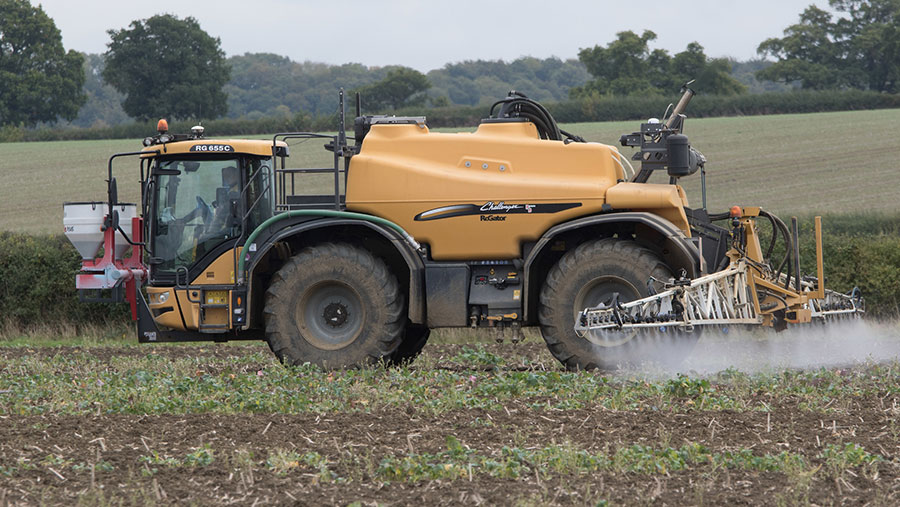EU proposal to renew glyphosate ends in stalemate
 © Tim Scrivener
© Tim Scrivener The future of glyphosate use in the EU remains unclear after a proposal to extend its licence failed to gain enough support.
The EU standing committee on plants, animals, food and feed (Paff), which gathers experts from member states, failed to attract enough support for a European Commission (EC) proposal to extend the licence for 10 years. The licence for glyphosate is due to end on 15 December.
In a statement, the EC said: “The standing committee on plants, animals food and feed met on Wednesday (25 October) to discuss renewing the approval of the active substance glyphosate. At the conclusion of the meeting, no vote was taken.
See also: Video – Farmers explain why glyphosate is vital
“The commission took note of the positions of the different delegations of member states, upon which it will now reflect, and will announce the date of the next meeting shortly.”
Vote postponed
According to reports, 16 countries – Bulgaria, Czech Republic, Estonia, Ireland, Cyprus, Latvia, Lithuania, Spain, Denmark, Hungary, Poland, the Netherlands, Slovakia, Finland, Romania and the UK – indicated they would vote in favour of the renewal.
However, Germany and Portugal would have abstained, while Greece, Croatia, France, Italy, Luxembourg, Belgium, Malta, Austria, Sweden and Slovenia all said they would have voted against the renewal.
This meant the proposal would have failed to meet the threshold of a qualified majority, so a vote was postponed until at least next month.
The commission also failed to attract enough support for a reduced licence extension for glyphosate of seven or five years.
Earlier this week, the European Parliament backed a full ban on glyphosate-based herbicides by 2022 and recommended immediate restrictions on the chemical, which is the active ingredient in Monsanto’s Roundup weedkiller.
Science disputed
The non-binding resolution – which was adopted by 355 votes to 204, with 111 abstentions – opposed the commission’s proposal to renew the marketing authorisation of glyphosate.
Environmental and health groups have called on the EU to ban glyphosate after the World Health Organization’s International Agency for Research on Cancer (IARC) listed glyphosate as a “probable human carcinogenic”.
However, two EU scientific agencies – the European Food Safety Authority and the European Chemicals Agency – both found the herbicide safe to use.
The agencies said they disagreed with the IARC’s conclusion.
Monsanto says 40 years of research and scrutiny by regulatory authorities has confirmed glyphosate’s safety.
‘Disappointed’
The NFU urged members states to look at the science and base their decision on the evidence – which it said showed no reason not to reauthorise glyphosate for 15 years, never mind 10 years.
NFU vice-president Guy Smith said the union was “disappointed” that member states failed to reach an agreement.
“The continued politicisation of this decision damages the credibility of the EU’s regulatory bodies and undermines the regulatory process. It also has huge implications for farming in the UK and across Europe,” he added.
“Glyphosate reduces the need to use other herbicides, it helps to protect soil and cut greenhouse gas emissions by reducing the need for ploughing, and it enables farmers in this country to grow crops that help produce safe, affordable, high-quality British food.”
Research by Oxford Economics and business consultants Andersons suggested UK farm output could fall by about £940m/year without glyphosate, partly due to a 20% drop in wheat production.
